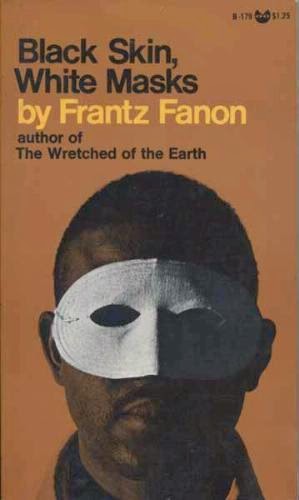Frantz Fanon
Notes on Frantz Fanon.
BY TONY WOLK
These notes are provided as annotations to Wolk’s 1972 interview with James Baldwin.
FRANTZ FANON (1925-1961): Fanon was born in Martinique, an island in the Lesser Antilles of the West Indies. He was best known for Black Skin, White Masks (1952; translated by Charles Lam Markmann, Grove Press, 1967) and The Wretched of the Earth (1961; translated by Constance Farrington, Grove Weidenfeld, 1963).
What is clear in Black Skin, White Masks is that Fanon’s goal in the civil war between France and Algeria was ultimately to drive the colonialists out of not just Algeria, but all of Africa. As a psychiatrist, he gives example after example of his patients’ neuroses, their nightmares. He notes that one out of every fifty Algerians had died in the war for independence. Chapter after chapter chronicles the damage, not just for the Negro but for the white man. Working from “psychoanalytic classifications” he writes:
The Negro’s behavior makes him akin to an obsessive neurotic type, or, if one prefers, he puts himself in a complete situational neurosis. In the man of color there is a constant effort to run away from his own individuality, to annihilate his own presence. Whenever a man of color protests, there is alienation. Whenever a man of color rebukes, there is alienation…. The Negro having been made inferior, proceeds from humiliating insecurity through strongly voiced self-accusation to despair. [60]
Were Fanon’s goal—to drive the colonists out of Africa—to be applied to the Americas, North and South, the Europeans would be obliged to retreat to their home base, leaving the two continents to the natives. And what of the slaves, brought from Africa? Perhaps a welcoming, to join hands, from Patagonia to the Aleutians, with the natives. And people of mixed race? Invisible Man has the answer for that, with Ellison’s surprise notion that a can of black paint will turn white with no more than a single drop of white.
Here Baldwin’s observations about Fanon come into play: that Fanon can be “misleading,” in the sense that it’s “another thing to be battling for it in the streets of Chicago, in a land which belongs to all of you. You know, there’s no invader to be repelled, there’s no colonial to be sent back to the mother country.” Of course, Fanon’s perspective is helpful. More than helpful. Just listen to a few of passages near the end of Black Skin, White Masks:
He who is reluctant to recognize me opposes me. In a savage struggle I am willing to accept convulsions of death, invincible dissolution, but also the possibility of the impossible. [218]
and
In the United States the Negro battles and is battled. There are laws that, little by little, are invalidated under the Constitution. There are other laws that forbid certain forms of discrimination. And we can be sure that nothing is going to be given free.
There is war, there are defeats, truces, victories.” [221]
and
There is no white world, there is no white ethic, any more than there is a white intelligence. [229]
And at the very end:
Why not the simple attempt to touch the other, to feel the other, to explain the other to myself? [¶] Was my freedom not given to me then in order to build the world of the You? [¶] At the conclusion of this study, I want the world to recognize, with me, the open door of every consciousness, [¶] My final prayer: O my body, make of me always a man who asks questions!







